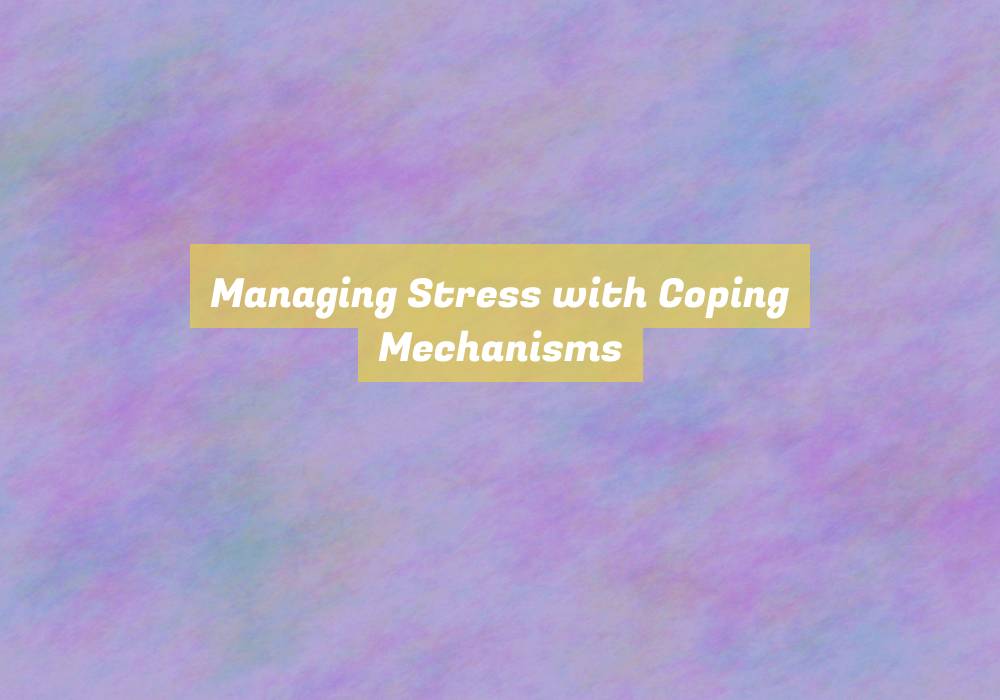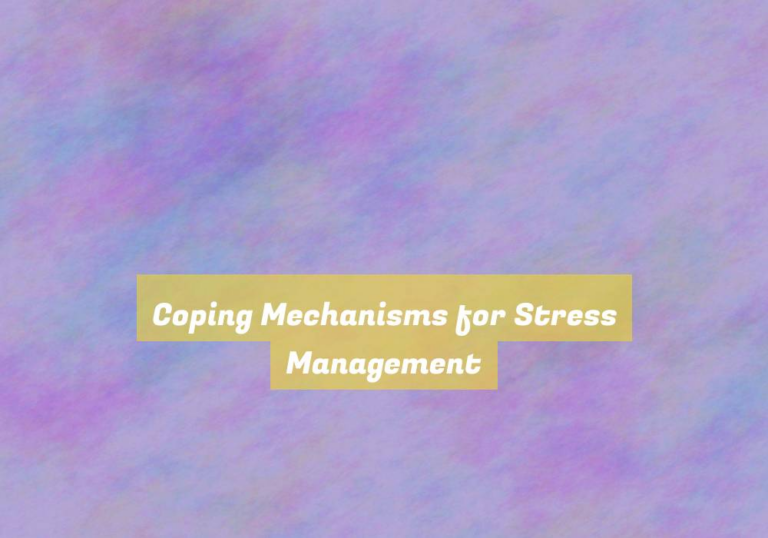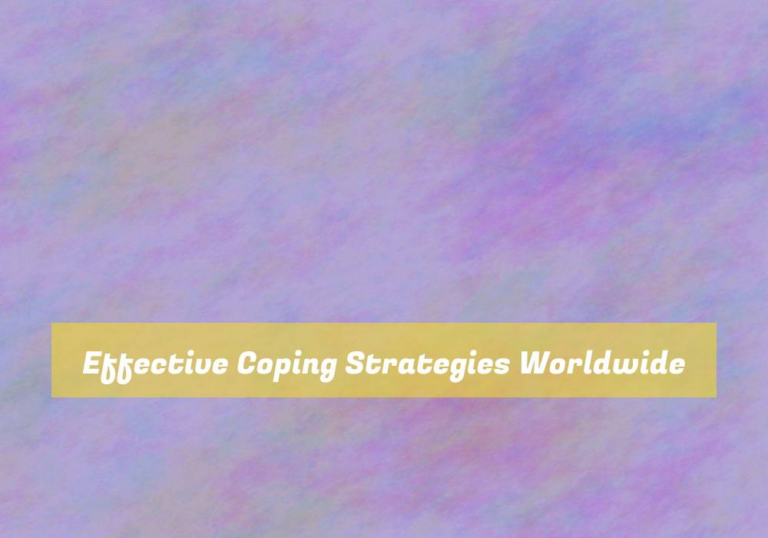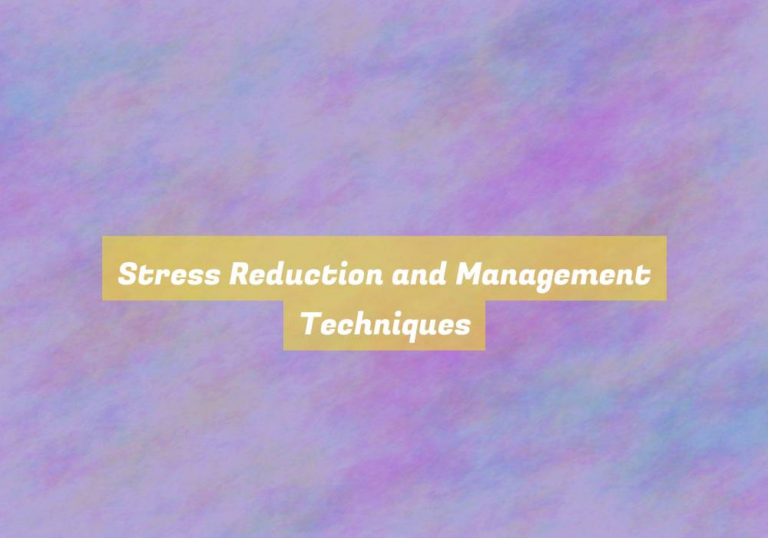Managing Stress with Coping Mechanisms
Coincidentally, everyone experiences stress at some point in their lives. ItG??s a natural response to the challenges we face, but managing it effectively is crucial for your overall well-being.
Now, you might be wondering how to navigate through the pressures and demands of daily life without feeling overwhelmed. Well, the good news is that there are coping mechanisms and strategies that can help you not only cope with stress but also thrive in the face of it.
These techniques encompass a variety of approaches, from mindfulness and meditation to physical activity and building social connections.
So, where do you start?
Understanding Stress and Its Impact
Understanding stress and its impact on your daily life is crucial for managing your overall well-being.
Stress is a natural response to the demands of life, but when it becomes overwhelming, it can have detrimental effects on your physical and mental health.
It can manifest in various ways, such as headaches, muscle tension, anxiety, and irritability, affecting your ability to function effectively.
Chronic stress has been linked to a higher risk of developing conditions like heart disease, obesity, and depression. It can also impair your immune system, making you more susceptible to illnesses.
Furthermore, stress can impact your relationships, work performance, and overall quality of life.
Recognizing the signs of stress and understanding how it affects you personally is the first step in learning how to manage it effectively.
By acknowledging the impact of stress on your life, you can take proactive measures to minimize its effects and improve your well-being.
This may involve making lifestyle changes, seeking support from others, and practicing stress-reducing techniques such as mindfulness, exercise, and relaxation exercises.
Mindfulness and Meditation Techniques
To effectively manage stress, incorporating mindfulness and meditation techniques into your daily routine can be highly beneficial. Mindfulness involves being fully present in the moment, acknowledging your thoughts and feelings without judgment. Meditation, on the other hand, focuses on calming the mind and achieving a state of deep relaxation. Both practices have been shown to reduce stress and anxiety levels, improve emotional regulation, and enhance overall well-being.
When practicing mindfulness, you can start by simply paying attention to your breath, observing the sensations in your body, and being aware of your surroundings. This can be done for just a few minutes each day, gradually increasing the duration as you become more comfortable with the practice.
Meditation can take many forms, such as guided meditation, loving-kindness meditation, or body scan meditation. Finding the right technique that resonates with you is key to making it a sustainable habit.
Incorporating mindfulness and meditation into your daily routine doesnG??t have to be time-consuming. Even just a few minutes of practice each day can make a significant difference in how you manage and cope with stress. So, consider integrating these techniques into your daily life to experience their positive effects on your overall well-being.
Physical Activity and Exercise
Incorporating regular physical activity and exercise into your daily routine can significantly reduce stress and improve your overall well-being. Engaging in physical activity prompts the release of endorphins, which are natural mood lifters, and can help combat the negative effects of stress on your body. Whether itG??s going for a brisk walk, practicing yoga, or engaging in a high-intensity workout, physical exercise can provide a healthy outlet for the buildup of stress and tension.
Moreover, regular exercise can improve your sleep quality, boost your self-esteem, and increase your energy levels, all of which contribute to better stress management. In addition to the immediate benefits, adopting a consistent exercise routine can lead to long-term stress reduction. Regular physical activity can help regulate your cortisol levels, which are often elevated during times of stress, and contribute to a sense of calm and relaxation.
It also provides a constructive way to take your mind off worries and concerns, allowing you to focus on the physical task at hand. Whether itG??s a solo activity or a group class, finding a form of exercise that you enjoy can make it easier to incorporate into your routine and reap the stress-relieving benefits.
Building Social Support and Connections
Building social support and connections with others is a key factor in managing stress and improving overall well-being. Engaging with friends, family, or support groups provides a sense of belonging and security, reducing feelings of isolation and loneliness. Sharing your thoughts and feelings with trusted individuals can help alleviate stress and provide a fresh perspective on challenging situations. Being part of a social network can also offer practical assistance, such as help with tasks or problem-solving, which can lighten the burden of stress.
Spending quality time with loved ones, participating in group activities, or joining clubs and communities can foster a sense of camaraderie and create a support system that can buffer the effects of stress. Positive social interactions trigger the release of oxytocin, a hormone that promotes feelings of trust and bonding, further enhancing your emotional resilience.
Additionally, building social connections can provide a sense of purpose and meaning, promoting a more positive outlook on life and reducing the impact of stressors. Prioritizing and nurturing your social relationships can significantly contribute to your ability to effectively manage stress and maintain a balanced well-being.
Conclusion
So, when life gets overwhelming, remember to take care of yourself.
Practice mindfulness, get moving, and reach out to your support network. These coping mechanisms can help you manage stress and improve your overall well-being.
DonG??t be afraid to ask for help when you need it, and remember that you have the power to take control of your stress and lead a more balanced life.
Keep practicing these techniques and watch as your stress levels decrease.
YouG??ve got this!







